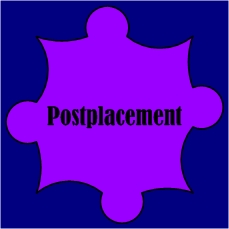Canadian Man Finds Brothers and Sisters

“Jacques Proulx, 73, spent a lifetime searching for his biological mother.
He never met her. But what he discovered, instead, were 12 half-brothers and sisters — a second family who never knew he existed. When he travelled from La Ronge, Sask., to the Abitibi region of Quebec in February, he hugged his sisters, teased his brothers and heard stories about his mother for the first time.
“It’s very moving. The tears came out. I couldn’t hold it back.” said Proulx.
For decades, Proulx’s family history was shrouded in secrecy, and requests for information from Quebec were continually denied.
When Quebec adopted Bill 113 in 2018, he was finally able to get some answers. The new law allows adoptees to learn the names of their birth parents, under certain conditions.
Proulx was born in 1946, the era of the Duplessis orphans.
In the 1940s and 1950s, the era when the iron-fisted Maurice Duplessis was premier, unwed mothers had little choice but to give up their children for adoption or hand them over to orphanages run by the Catholic church.
In order for those institutions to gain access to federal government subsidies for psychiatric asylums, they often labelled those orphans as “mentally deficient.” The orphans got little schooling. Many were physically and sexually abused.
Proulx, who grew up near Rimouski, in Quebec’s Lower St. Lawrence, says he was one of the lucky ones: his adoptive family loved him and took good care of him.
He was 12 when he found out he was adopted. While playing hide-and-seek with his sister Jocelyne, he discovered a shoe box under his mother’s bed.
“I was very curious, so later on when my mom was away, I opened the shoe box and saw some papers,” he said. “I realized those were adoption documents, and one was me.”
Proulx found out he was born in Saint-Félix-de-Dalquier, a small town in Quebec’s Abitibi-Témiscamingue region, near the Ontario border.
When he was 20, he started sifting through birth, death and marriage records, looking for his biological mother. He wrote Quebec social services agencies time and time again, but privacy laws made it next to impossible for him to get any information on who she was.
“In those days, the Church [had] control of the documents and the release of any names. It was quite hard to open the door,” he said. “Actually, the door was locked.”
Proulx joined the military and travelled the world, eventually ending up in La Ronge, in northern Saskatchewan. A chance encounter with another Duplessis orphan there led him to the man who would help change his life.
“I hired private investigators, but everybody just dropped me. They would go for a ways and then hit a wall,” he said. “But about four years ago I met Rod Vienneau.”
Rodney Vienneau, whose wife had been an orphan, has fought for their stories to be told for decades. The author of Collusion: the Dark History of the Duplessis Orphans, Vienneau offered to help Proulx.
The change in Quebec’s adoption laws entitles adoptees to find out the names of their birth mother and father, unless those parents have registered a veto to identity requests.
After the law was changed, Proulx wrote to Quebec again in 2019, and in December, a reply came back with his mother’s name: Yvette Sigouin.
But that led him him to a disheartening discovery: her obituary. His biological mother had died just three months before he found out who she was.
‘I was not a stranger’
The obituary, however, listed the names of Sigouin’s other 12 children.
Elated, Proulx contacted the Maison du Bouleau Blanc, a seniors’ residence in Amos, Que., where Sigouin had been living.
Lyne St-Laurent, one of Yvette Sigouin’s daughters, happened to work in the home. She was shocked to learn that a potential half-brother was trying to find his siblings and had left documents proving Yvette Sigouin was his mother.
“I called him and introduced myself. I told him ‘My name is Lyne St-Laurent, we don’t know each other, but I’m the daughter of Yvette Sigouin,'”
“He couldn’t stop crying,” says St-Laurent. “It was really special — but also painful, to know our mother kept that secret her whole life.”
Soon, Proux was in touch with eight other half-brothers and sisters. Wanting to be sure he had indeed found his family, he asked Lyne St-Laurent if she was willing to do a DNA test.The two sent off saliva samples, and the results came back a 99.98 per cent match, confirming them as half-siblings.
In February, Proulx flew to Montreal, where his half-brother Jean was waiting to pick him up.
He travelled to Saint-Basile-le-Grand, Amos and Val-d’Or, meeting nine half-brothers and sisters and learning about the mother he never knew and a family history he’d spent half a century longing to discover.
Despite their lifetimes spent apart, Proulx said his biological family made him feel truly at home.
“I was not a stranger. It was like I was someone who lived with them and left, went to do a life elsewhere,” he said. ”
“It’s like they were waiting for me to return.””
After 54 years of searching, an adopted Quebecer finds his biological family
[MSN 5/3/2020 by Josh Grant]
REFORM Puzzle Piece


Recent Comments